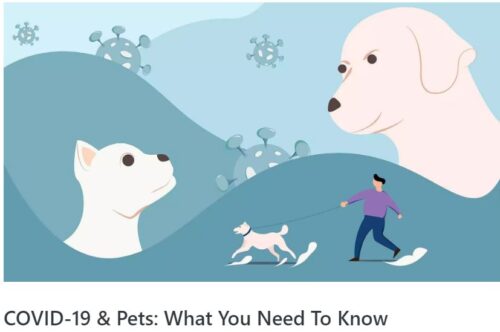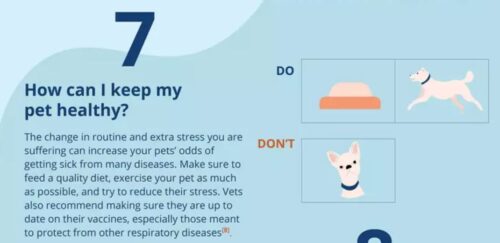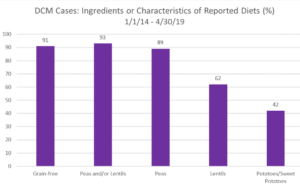Infographic: Coronavirus and pets
Leo Wilson, an editor at CyberPet, sent me his graphic advice to pet owners worried (for good reason) about Coronavirus. His Infographic has 12 pieces of advice.

Here’s advice #7 about basic health care.

Leo Wilson, an editor at CyberPet, sent me his graphic advice to pet owners worried (for good reason) about Coronavirus. His Infographic has 12 pieces of advice.

Here’s advice #7 about basic health care.

It’s bad enough to have to worry about avoiding getting sick from Coronavirus, but now we have to worry about making our pets sick too.
My pet food mantra: more research needed!
Although I haven’t written anything much about pet food since Pet Food Politics (2008) and Feed Your Pet Right (2010), I occasionally run across articles of particular interest. These come from Pet Food Industry, the exceptionally intelligent trade magazine for this industry.
The Pet Food Business
Hill’s Recall Because of Excessive Vitamin D
Protein in Pet Foods
CBD, in case you haven’t noticed, is the hot food trend for 2020. But for pets? Yes, them too.
Pet Food Industry reports the results of a survey by WoofWhiskers.
Dog owners may be spending $42 a month on CBD (cannabidiol) oil for their pets.
Why? Anxiety and stress were the top reasons given.
And then,
More than half of respondents, 57%, reported using CBD oil for themselves.
Pet Food Industry also reminds readers that sales of CBD-containing pet and human items are illegal
because they are intended for use in the diagnosis, cure, mitigation, treatment, or prevention of disease in animals and/or intended to affect the structure or any function of the body of an animal. Further, as discussed below, these products are unapproved new animal drugs and marketing them violates the FD&C Act.
Maybe, but I see them sold everywhere.
I wonder if anyone is doing research to see whether CBD oils do any good for dogs? If you know of any, please let me know.
Pet food continues to be an ongoing source of news, and pet food politics an ongoing source of interest:
Comment: My book with Malden Nesheim, Feed Your Pet Right, is actually an analysis of the pet food industry. It came out in 2010 but holds up pretty well, I think, as a means for understanding recent events in pet food politics.
Plant proteins for dogs? I’ve written about this before, but now there’s more.
Contrary to prevailing rumor, dogs are well documented to be able to digest grains. Whether grains are optimal for dogs is another matter and I sure wish we had some decent research on the question.
What we do have is pet-food makers scrambling to sell pet foods to owners convinced that grains are bad for their dogs. These products are often made with proteins extracted from peas and lentils.
The FDA has gotten reports that dogs fed such pet foods have developed a form of heart disease called Canine Dilated Cardiomyopathy (DCM).
The FDA is investigating whether grain-free pet food could be linked to DCM, and it posts the data on reported cases online.
When the FDA asks owners what dogs with DCM ate, this is what it finds.

Not displayed here are cases of DCM among dogs eating standard commercial pet food. Those are listed here.
What causes DCM and why so many cases are associated with plant proteins is not known. One hypothesis is deficiency of taurine (synthesized from sulfur-containing amino acids) in pea and lentil proteins, but adding taurine to diets does not seem to help.
Pea and lentil farmers have complained to the FDA that its warning is hurting their business. Pet Food Industry reports that sales of grain-free pet foods have declined since the FDA announcement.
The author of a 2016 book about obesity in pets and conflicts of interest in the veterinary nutrition community, who is also the founder of a plant-based pet food company thinks that plan-based ingredients have nothing to do with this.
While the arguments are raging and the FDA continues investigating, what to feed your pet?
Basic advice (from my book with Malden Nesheim, Feed Your Pet Right,” which is actually an analysis of the pet food industry):
Since writing two books about pet food in 2008 (Pet Food Politics) and 2010 (Feed Your Pet Right), I haven’t said much about this topic but am inspired to comment by this article in Food Safety News.
If you are a pet food maker, and the FDA finds Salmonella in your products and insists you recall them, what should you do?
A. Recall the products immediately
B. Apologize to your customers and promise this will never happen again
C. Hire a food safety expert to review and revise your food safety procedures
D. Train all employees to follow food safety procedures diligently
E. Sue the FDA to allow you to continue selling Salmonella-contaminated pet food
The correct answer? E, apparently.
Incredible as it may seem, Lystin LLC, the parent of Answers Pet Foods which sells raw meat and poultry, is suing the FDA on Constitutional grounds to allow it to sell foods contaminated with Salmonella. Why?
According to this company, people should be able to feed their pets whatever they like, especially because its brands already carry this warning:
WARNING: NOT FOR HUMAN CONSUMPTION. THIS PRODUCT HAS NOT BEEN PASTEURIZED AND MAY CONTAIN HARMFUL BACTERIA.
You want to continue buying this pet food? OK. You were warned.
Personally, I’d find another brand more committed to the safety of dogs and their owners.
I can’t wait to see who wins this one.
Ah the wonders of modern technology.
Cats like to catch and eat mice (that what cats do), but if you believe in mouse rights and are appalled at the idea of killing mice for food there is a solution to this problem in the works.
Meet Because Animals, a company devoted to feeding pets “safer and more nutritious foods without harming the environment and other animals.”
How?
Lab-grown, cell-cultured mouse cells made into meat for cat treats.
These are not yet on the market—regulatory issues are involved—but stay tuned.
And no, you can’t make this stuff up.